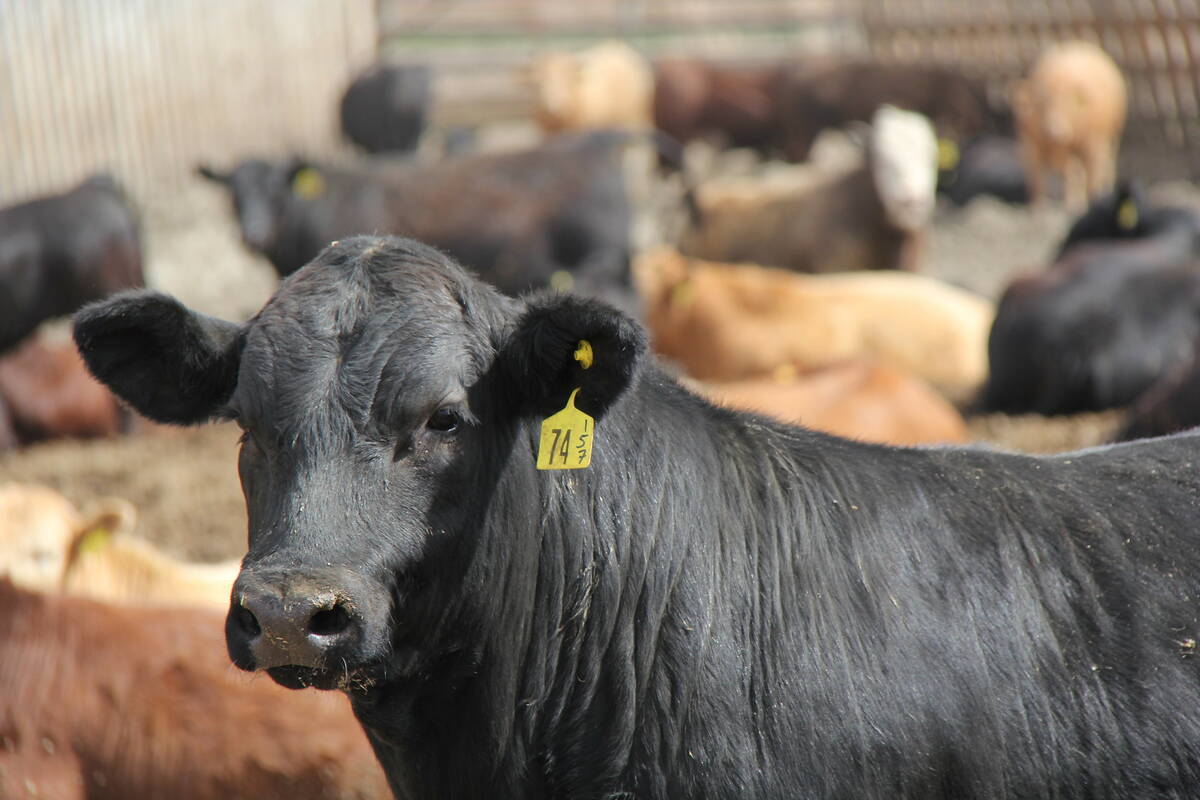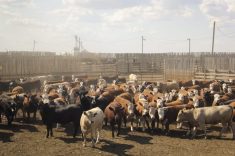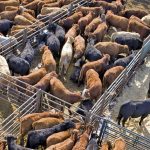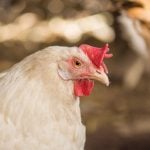Compared to last week, western Canadian yearling prices were up $4-$6 while calf markets traded $6 to as much as $10 above week-ago levels.
May feeder cattle futures are trading at a $8 premium to the nearby March contract. The carrying charge in the futures market has encouraged buyers to step forward sooner rather than later. The backlog of market-ready fed cattle supplies in Alberta has been liquidated and feedlots are more current production. Strength in deferred live cattle futures was also supportive to the nearby feeder market.
Weather has been conducive for backgrounding and flesh levels have been manageable. Most cow-calf producers have sufficient forage supplies to hold their calves for a longer period. The number of light-weight calves coming on the market appears to be declining as we draw closer to spring. This has bolstered demand for 500- to 600-pounders. Demand from Ontario buyers continues to be more aggressive, especially for Limousin-type cattle. Ontario elevator bids for corn were $322 per tonne last week compared to the Lethbridge market at $445/tonne.
Read Also

U.S. livestock: Feeder cattle hit record high on tight supply, strong cash prices
Chicago | Reuters – Chicago Mercantile Exchange feeder cattle futures scaled to a record high on Wednesday on strong cash…
South of Edmonton, a larger group of Simmental mixed steers carrying lower flesh levels on light grain ration with full health data averaging 970 lbs. sold for $233. In the Red Deer region, Angus-blended heifers with medium flesh on grain and silage diet weighing 930 lbs. closed bids at $213. Northwest of Winnipeg, a small group of Charolais-based steers weighing 895 lbs. silenced the crowd at $244 and similar-quality heifers weighing 830 lbs. charted the board at $226. In central Saskatchewan, Gelbvieh blended steers with medium to thicker flesh weighing 840 lbs. were quoted at $247 while in east-central Saskatchewan, thinner Charolais weighing 833 lbs. were quoted at $255.
North of Brandon, a small group of black lower-flesh steers weighing 737 lbs. reached up to $276. East of Calgary, Limousin mixed steers weighing 690 lbs. were valued at $278. In central Saskatchewan, Angus mixed steers weighing 610 lbs. stopped the crowd at $302 and mixed red heifers weighing 560 lbs. notched course at $265. In southern Alberta, black steers weighing 540 lbs. were quoted at $325 and red heifers which scaled at 500 lbs. were reported at $274. The calf market was even across the Prairies with notable premiums at any locations.
For the week ending Jan. 28, Canadian year-to-date feeder cattle exports were 9,215 head, down 33 per cent from last year. Market reports in Oklahoma had steer and heifer calves trading up $15-$20 compared to the last week of January. U.S. markets are digesting the recent cattle inventory report. Canadian prices appear to be trading at a premium to U.S. values to curb export movement.
— Jerry Klassen is president and founder of Resilient Capital, specializing in proprietary commodity futures trading and market analysis. Jerry consults with feedlots on risk management and writes a weekly cattle market commentary. He can be reached at 204-504-8339 or via his website at ResilCapital.com.
















